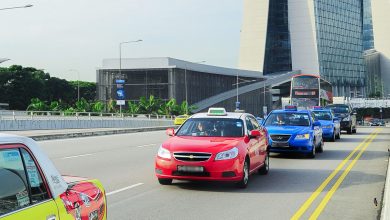Moroccan cultures and traditions

Moroccan cultures and traditions
Morocco resolutely looking towards its future, but it does not wish to break with its Moroccan cultures and traditions, which is what constitutes its strength.
THE MOROCCAN IN HIS DAILY LIFE
Like their Mediterranean neighbours, Moroccans have a rather expansive and proud character. The tone of voice rises quickly to express emotions, joy or anger. The streets are therefore very lively, especially in the souks. Moroccans love the small pleasures of life, count on them for the quality of their cuisine or to chat over a mint tea. The evening is a privileged moment in Morocco, the temperatures cool down, it’s the best time to go out and sit on a terrace.
Moroccans have no doubt inherited the culture of the caravaneers, they love to do business. Commercial negotiation is an institution in the country. Prices are therefore not often displayed, they are up for negotiation! If they are in writing, consider the posted price as a basis for negotiation.
THE LANGUAGE
Education, administration, and the media all use classical Arabic. Everyday life is conducted in dialectal Arabic. Tamazight (Berber) is spoken in the majority of Moroccan regions, such as the Rif, Atlas, and Souss… The dialects differ depending on the locale.
THE CUISINE
Through its recipes and dishes, Morocco bears witness to the great diversity of influences that it knows how to bring together in a harmonious whole in its lands. (Read the article on Moroccan cuisine)
THE FAMILY
Attached to their roots, all Moroccans attach particular importance to their family. Little by little, the family is becoming more modern. Overall, there are fewer and fewer forced marriages and polygamy is less and less common.
However, this modernity is not uniform, depending on the place. The big cities have gradually westernised their way of life. Women can easily go out without a veil, in clothes that would be considered provocative elsewhere.
The situation is still different in the countryside, where women are not very visible in public places and go out veiled. In these villages, Western women are advised to be careful with their dress.
RELIGION
Islam is the official religion of the State, the King is the religious leader of the country. 99% of Moroccans are Muslims, mainly Sunni. Coexistence with other religions has been going on in the country for centuries, the practice of other religions is guaranteed by the constitution.
Cultural and commercial exchanges with Europe and the West in general influence Morocco towards a moderate approach to Islam. Fundamentalist movements remain marginal in the country. The youth remains very religious but is becoming less religious. In the cities, the day is punctuated by the muezzin who calls for the 5 daily prayers from the top of the minaret.
During Ramadan, Moroccans fast, stop drinking and smoking from sunrise to sunset. This changes their daily lives, and public services and businesses adjust their working hours. However, it is possible to have lunch in hotels if you find yourself in a city at midday.
SONGS AND DANCES
Songs and dances play an important role in Moroccan life. The Chiouks (masters), who are the custodians of the tradition, lead the family festivities in the villages, such as weddings, baptisms and other celebrations. During these celebrations, ancient poems, religious texts or songs about everyday life are sung. The Chiouks are accompanied by the bendir, a musical instrument.
RULES OF ETIQUETTE
Showing basic courtesy to a welcoming country means, of course, respecting local customs. Misunderstandings and embarrassing situations can be avoided.
Some rules:
In Morocco, access to mosques and holy places is forbidden to non-Muslims, except for the Hassan II Mosque in Casablanca, the Mohamed V Mausoleum in Rabat, the Moulay Ismaïl Mausoleum in Meknes, and the Moulay Ali Chérif Mausoleum in Rissani.
Mint tea is a gesture of hospitality, accept it. Avoid provocative dress. If you are invited to share a meal with a family, wash your hands in the ewer. The meal will begin after the host says “bismillah”, praise to God. If you are not given cutlery, eat with your right hand. Taste everything, but you don’t have to eat everything you are served, as it is often impossible to eat from a full plate. Ask for permission before photographing someone
How to explore Moroccan cultures and traditions?
When you travel to Morocco I advise you to travel with a local travel agency in Morocco, cause in this way you will have the opportunity to discover many things that you can not find by yourself, and I recommend you Morocco Tour Operator agency, it is one of the best travel agencies in Morocco…




